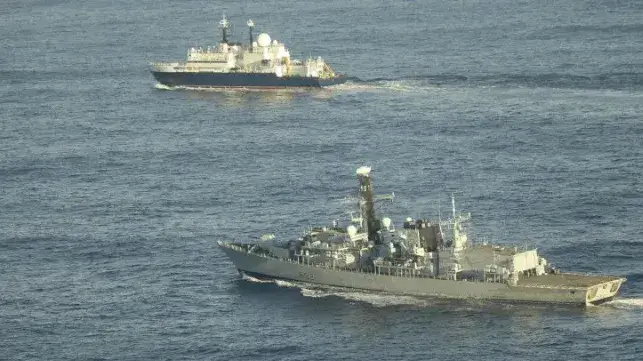UK Parliament: Undersea Cables Vulnerable to Russian Attacks

The UK Parliament is raising the red flag over the country’s ability to protect its critical but vulnerable undersea infrastructures from potential attacks by Russia, warning that the government is “too timid” in defending the assets.
As more European nations enhance defense capabilities to protect undersea cables from attacks not only by Russia but also China, the UK government is coming under criticism for inadequate preparations to safeguard the infrastructures.
In a report dubbed ‘Subsea telecommunications cables: resilience and crisis preparedness’, the UK Parliament reckons that although the UK’s vast undersea internet cable network does not face imminent threat, the country cannot afford a business-as-usual attitude owing to shifting geopolitical landscape. Tragically, while the possibilities of the UK’s infrastructure being targeted in a crisis remain elevated, Parliament is not confident the country is well-prepared to prevent such attacks or recover within an acceptable time period.
Being an island nation that is almost entirely reliant on subsea cables to transmit data connecting it to the outside world, the UK remains vulnerable to situations where adversaries can often use civilian vessels to ‘accidentally’ attack the cables, in effect crippling major facets of the economy. Russia and China have repeatedly been accused of using proxy actors to sabotage subsea cables, particularly in the Baltic and Indo-Pacific regions.
Concerns over the assets' safety is exacerbated by the fact that Moscow knows the locations of the cables. The report shows that around 64 undersea cables land in the UK, including 45 international systems. Around 50 of them are active, with some running through the English Channel.
The fact that many cables cluster in a few locations around the UK and Ireland adds to their vulnerability. For instance, a vessel journeying from Land’s End towards Aberystwyth would cross around 20 cables. Another ship travelling down the Suffolk coastline would cross eight major cables in just a few hours.
An incident involving the Russian spy ship Yantar loitering over the UK’s subsea infrastructure in January has heightened alert over possible malicious sabotage. During the incident, the Royal Navy frigate HMS Somerset was deployed to shadow Yantar, closely watching every movement.
The report warns that Russia is currently the primary threat actor capable of causing severe national disruption to the UK owing to its geographical proximity, capability mix and willingness to use military force and proxies to achieve political objectives.
China, which possesses an increasingly capable array of maritime assets, is another major threat. While Beijing’s primary security focus remains on the Indo-Pacific region, possibilities of targeting UK assets remain high.
“While our national connectivity does not face immediate danger, we must prepare for the possibility that our cables can be threatened in the event of a security crisis,” said Matt Western, Chair of the Joint Committee on the National Security Strategy. He added that Russian President Vladimir Putin has shown every sign of wanting to test the soft underbelly of the NATO alliance.

that matters most
Get the latest maritime news delivered to your inbox daily.
Undersea cables are a vital part of global internet infrastructure. Around 570 cables, usually run by private companies, carry 95 percent to 99 percent of the world’s intercontinental telecommunications data.
To protect the UK’s undersea infrastructure, the report wants the government to buy a cable repair ship by 2030 to assure genuinely sovereign repair capacity. It also calls on the Royal Navy to establish a cadre of reservists and serving personnel to learn cable repair skills, to ensure cables could be repaired in a conflict scenario - a challenging order since the UK's maritime services face personnel shortages of their own.
